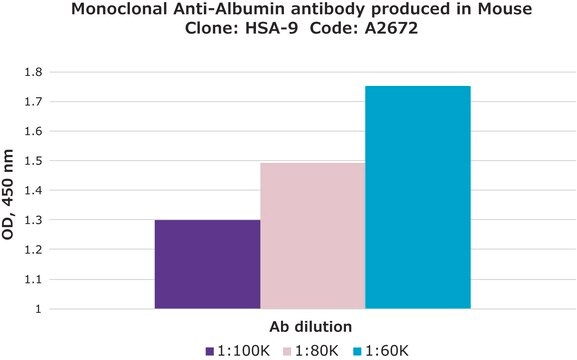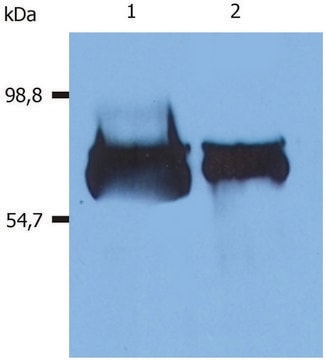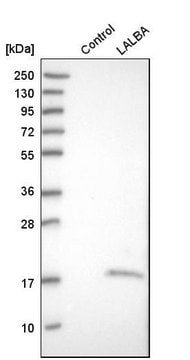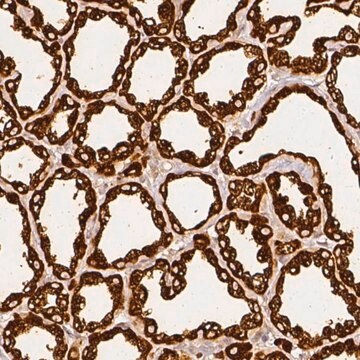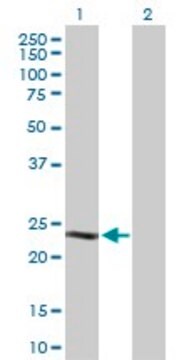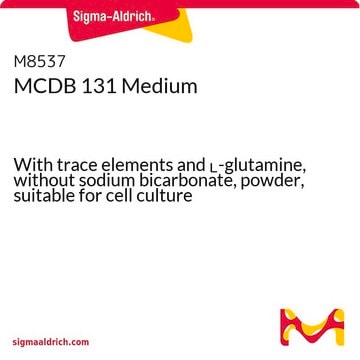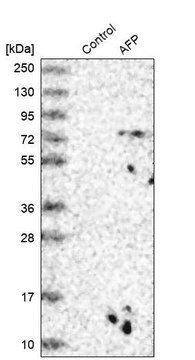A6684
Monoclonal Anti-Albumin antibody produced in mouse
clone HSA-11, ascites fluid
Sinónimos:
Anti-AFP
About This Item
Productos recomendados
biological source
mouse
Quality Level
conjugate
unconjugated
antibody form
ascites fluid
antibody product type
primary antibodies
clone
HSA-11, monoclonal
contains
15 mM sodium azide
species reactivity
gibbon, baboon, human, rhesus monkey
should not react with
turkey, feline, hamster, pigeon, rat, marmoset, pig, bovine, canine, donkey, guinea pig, rabbit, chicken, sheep, goat
technique(s)
immunohistochemistry (formalin-fixed, paraffin-embedded sections): suitable
indirect ELISA: 1:10,000
western blot: 1:5,000
isotype
IgG2a
UniProt accession no.
shipped in
dry ice
storage temp.
−20°C
target post-translational modification
unmodified
Gene Information
human ... ALB(213)
General description
Specificity
Immunogen
Application
- immunofluorescence
- staining
- double staining
- enzyme-linked immunosorbent assay (ELISA)
- immunoblot
- immunohistochemistry
Biochem/physiol Actions
Disclaimer
¿No encuentra el producto adecuado?
Pruebe nuestro Herramienta de selección de productos.
Storage Class
13 - Non Combustible Solids
wgk_germany
WGK 1
flash_point_f
Not applicable
flash_point_c
Not applicable
Certificados de análisis (COA)
Busque Certificados de análisis (COA) introduciendo el número de lote del producto. Los números de lote se encuentran en la etiqueta del producto después de las palabras «Lot» o «Batch»
¿Ya tiene este producto?
Encuentre la documentación para los productos que ha comprado recientemente en la Biblioteca de documentos.
Los clientes también vieron
Nuestro equipo de científicos tiene experiencia en todas las áreas de investigación: Ciencias de la vida, Ciencia de los materiales, Síntesis química, Cromatografía, Analítica y muchas otras.
Póngase en contacto con el Servicio técnico